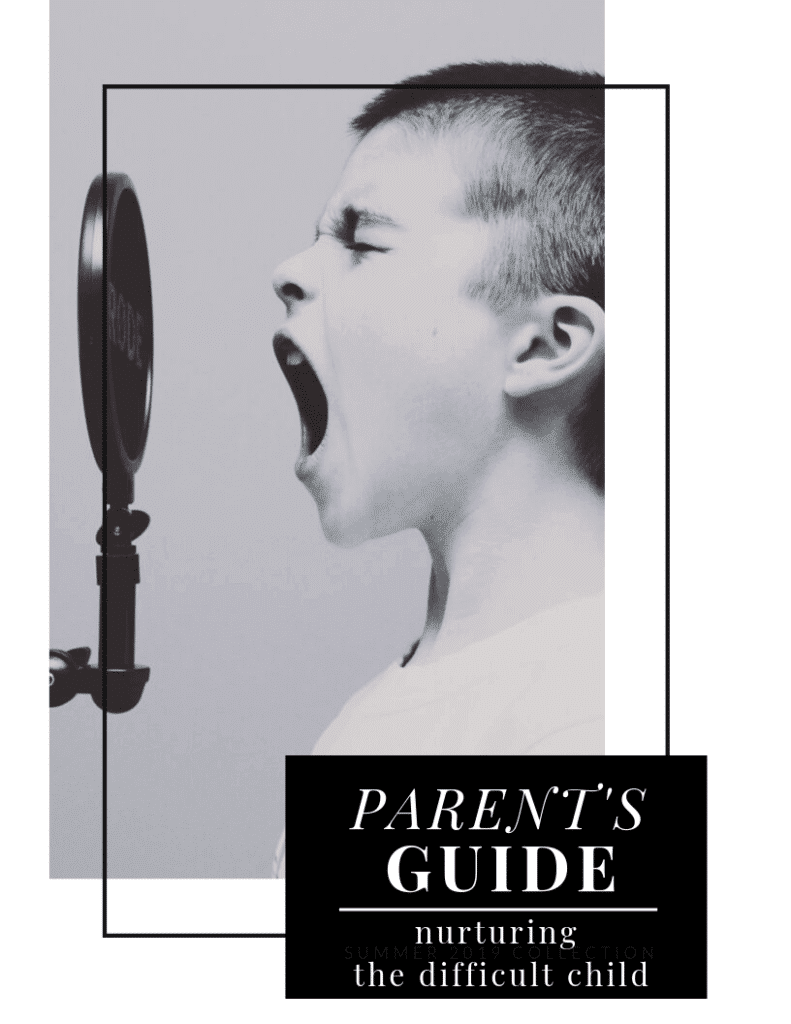A Parent’s Guide to The Nurtured Heart Approach
My daughter, Sapphire, was diagnosed with Oppositional Defiant Disorder at age 9. She is what most would call a “difficult child”, but it's not all the time. In fact, when she's good, she's GREAT! But when she gets off track, it's like a dumpster fire that nobody can put out. That's how it used to be, at least. Learning and implementing the Nurtured Heart Approach™ changed my parenting, and our lives. I have faith it will do the same for you.
What is the Nurtured Heart Approach?
“The Nurtured Heart Approach™ is a set of core methodologies originally developed for working with the most difficult children. It has become a powerful way of bringing inner wealth to all children while facilitating parenting and classroom success. It has a proven, transformative impact on every child, including those with behavioral diagnosis such as ADHD, Autism, Asperger’s Syndrome, Oppositional Defiant Disorder, and Reactive Attachment Disorder – almost always without the need for medications or long-term treatment.” Source
I love the Nurtured Heart Approach™ because it takes me back to my days of teaching Head Start. We always used positive reinforcement, weren't allowed to use the word “no”, and had rules in place with zero lecturing. In case you're wondering, instead of saying “no running” we would say “walking feet, please”. This puts an image of walking in the child's head, whereas saying “no running” puts an image of running in their head. At least, that's what they taught me… and it seemed to work well!

Three Stands of The Nurtured Heart Approach
The NH approach is similar to Love and Logic in many ways. With L&L, you also keep consequences predictably boring. Approaching discipline this way has greatly improved my parenting. It's not always easy… in fact, sometimes I just want to SCREAM… but I know handling things this way has improved my daughter's behavior as well, so I have to put the work in if I want to continue to see good behavior in her.
- I refuse to be drawn into accidentally energizing and rewarding negativity. Make the response to negativity boring and predictable. Do not give it energy, loads of time, or animation.
- I will energize and nurture success! I will energize positivity! You may need to lower the bar a bit on this one, to catch the smaller “wins” – especially at first.
- Clearly, but un-energetically, enforce limits. Make sure rules are clear. “Here are the rules, and here is what happens when you choose to break the rules.” Do not warn, bargain, or lecture. Follow through with consequences.
NOTE: This is NOT ABOUT IGNORING! It is about giving a basic, boring, predictable response to consequences. You're giving your child an unenergized version of yourself at this time, but you are not ignoring their behavior – this can create more issues.
CORE METHODOLOGIES: THE THREE STANDS
- Neutralize Negative Behavior (“Don’t energize the bunny- take the batteries out”)
- Energize Positive Behavior in Meaningful Ways (“Create the relationship that honors you and your child and allow for time-in)
- Demonstrate Fair and Consistent Boundaries (“Create limits for transformation”)
- (Source)
Some of the many BENEFITS OF NURTURED HEART APPROACH
- Understand the uniqueness of the challenging child in the here & now
- Teaching a child to “Shift” or “flip” his/her intensity in successful ways
- Create a deeper sense relationship by allowing by building success & inner wealth for the child
- Identifying behavior that is working by feeding the soul with greatness this is not complimenting and feeding empty words
- Teaching a child to be Fearless in standing in their own Greatness
- (Source)
The Compass 4 Life – Dan Peterson
Dan Peterson is the founder of The Compass 4 Life. He is an advanced trainer for the Nurtured Heart Approach™. What Dan says really hits home. Kids need to be nurtured. Their desire to be nurtured is so strong, that they will misbehave just to get our attention. I see this a lot in my daughter.
“The core of why kids behave the way they do, is they just want to be engaged with and connected to the adults. And if those problems connect them with adults, it doesn't matter what consequence or reward, what matters is are you going to pay attention to me or not? And if you do when I have problems, there's no way that I'm going to stop doing that because my need to belong and be seen by you is much more important than anything you can take away from me or give to me if I keep doing the right thing.”
Public School and “Nurturing”
How can you nurture a child when they're one of 30, 40? This is tough for teachers in public schools especially, because they have to address negative behavior in order to stop it. When you have 30+ kids in a classroom, the only ones getting attention are the ones who are misbehaving. The other kids see this, and some follow suit with the bad behavior, creating chaos.
Teacher then loses control of her classroom, and starts yelling or has to call the principal in. Threats of detention and getting kicked out of school fly through the air, and kids like mine jump at the chance to be “the one” that gets THE MOST ATTENTION EVER by being a smart ass to the principal right in front of everyone of course. What a captive audience! Dragged out of class (figuratively, of course) and walked to the principal's office – by the principal himself! It's like my child is now a celebrity, getting looks in the hall from disapproving staff.
She then has to sit in the office while the principal calls Mom. Oh, wow! A call home to mom, all because I was rude to an adult. This is amazing. Mom is going to be mad, but she will ground me which means she has to stay home with me all night. More one on one time. Hmmm… Can't wait to spend time with Mom!
I'm not sure if that's exactly how my child's brain processes those events when they happen, but with how often they were happening, it seemed about right. We decided to homeschool her because she was getting ISS, kicked out of school, etc. She was enjoying the negativity far too much, so we removed the opportunity for her to get that negative attention. Now she's at home with us and we do not engage when she makes poor choices.
The Nurtured Heart Approach Principles
I know it's difficult to find time to watch videos – heck, I don't even watch Netflix anymore! However, these are videos that changed my life. They're worth watching. Bookmark this page and come back so you can watch a few at a time.
Principle 1: Accidentally Energizing Negativity
Principle 2: Radical Appreciation
Principle 3: Choose to See Greatness
Principle 4: Create Greatness
Principle 5: Act Out Greatness
Principle 6: Flip the Switch
Principle 7: See the Greatness
Principle 8: It Isn't Just Happening
Principle 9: Reset
Principle 10: The Gift of You
My Takeaway: Catch them Being Good
For me, the main takeaway from The Nurtured Heart Approach is: go out of your way to catch your child being good. My daughter reacts amazingly well to praise, but when she's been having constant meltdowns and making poor choices at school to the point where she's getting ISS and kicked out, it's realllllly really tough to catch her being good. But the truth is, she's well-behaved at home 90% of the time because she gets what she needs at home. Being one of hundreds of kids all day doesn't work well for ODD kids especially. Knowing what she needs and being able to give it to her is crucial.
When she makes poor choices at home, I remind myself “Don't water the weeds!”. If you want flowers to grow, you water the flowers, right? Same goes for behavior. If you want good behavior to continue, praise (water) the good behavior, no matter how small. Do not give attention to (water) negative behaviors.
Even if you have to lower the bar (which I HATE doing, by the way), you've gotta find a way to catch your child displaying positive behaviors. I know this may be difficult, especially if your child has ODD or other issues that make them even more defiant than a typical child… but hear me out.
Think about what your child does every moment of every day. It may seem like they misbehave a lot, but the truth of the matter is, they aren't ALWAYS misbehaving.
What does your child like doing? Set them up for success. I know Sapphire loves the dogs so much. So when I see her cuddling with them, I will point out how sweet she is being. “I see you cuddling with the dogs, I know they really like when you spend time with them. That shows you are caring.” It may seem silly, but that statement gives her a small “win” and she notices that I'm happy with her. This encourages her – in a small way – to continue her good behavior.
“Sapphire, I noticed that your homework was extra difficult tonight, but you finished it! That shows that you are intelligent and perseverant.”
“I’m impressed that you ___________ instead of ________. That really takes ____________ to make that kind of decision!”
This doesn't mean we walk on eggshells or avoid chores she dislikes, we just put more energy into the positive and expect greatness when tough situations arise. I'm very thankful that Sapphire likes to do chores – she LOVES to help, which makes things easier for me.
It may be like pulling teeth to get your child to do chores (I have two kids like that). Focus on the positive as much as possible, give boring, predictable responses to the negative, and don't argue, bargain, or lecture.
CHALLENGE: Catch your child being good today. Go above and beyond to tell them how thankful you are for their behavior. Be specific. Use a statement like “I see you _________, and that shows you are __________.”
Additional Resources
- Transforming the Difficult Child AUDIO CD
- Transforming the Difficult Child: The Nurtured Heart Approach
- Transforming the Intense Child Workbook
- Fearless Parenting: Stepping Into Life's Greatest Role with the Nurtured Heart Approach
- Nurture My Heart–A Nurtured Heart Approach Handbook
Download my “Nurture Them” Guide
I wrote a 15 page guide/workbook to help you learn the NHA along with me.
If for some reason you have no desire to join my email list, no worries! Here is the guide – free, no strings attached! However, I hope you DO join my email list because that's where I share tips and guides FIRST. My goal is to always deliver value at no cost to you. <3
If this post helped you, inspired you, or heck, even if you read this far… please take a moment to choose one of the pins below and PIN IT on Pinterest!












